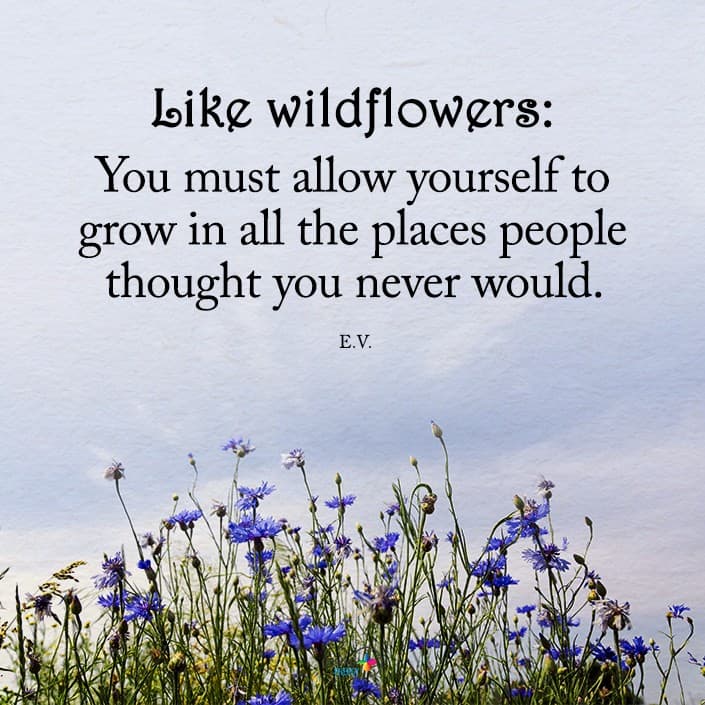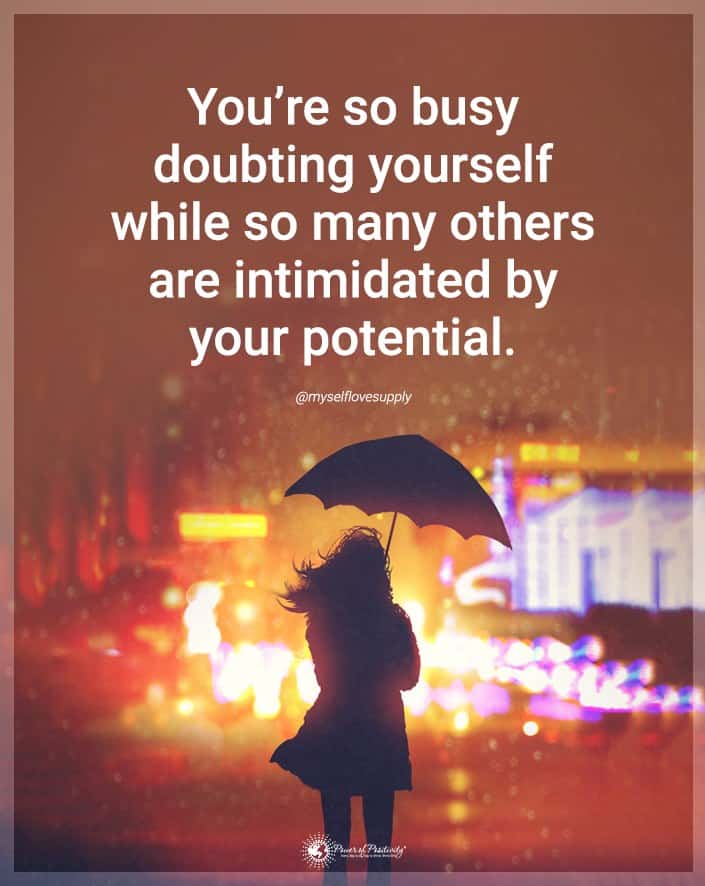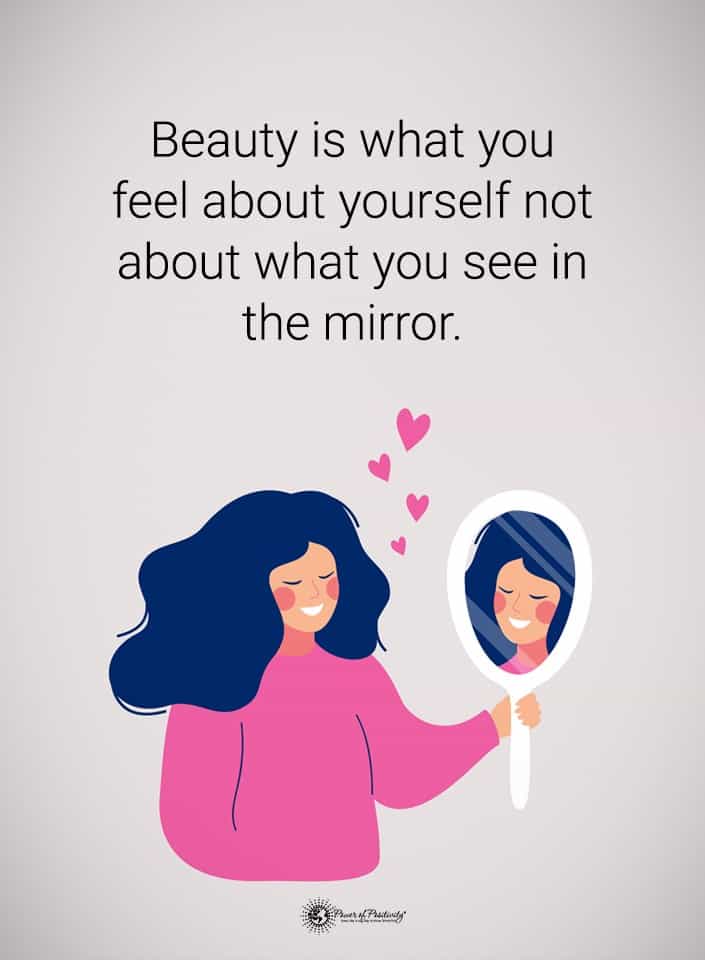Do you ever feel doubt when making decisions? Have you ever felt that, no matter what you do, your choices are unsatisfactory? That’s probably because you are second-guessing yourself and have lost confidence in your actions.
What Are The Implications Of Second-Guessing Yourself?
For most people, the concept of second-guessing is familiar – it simply means criticizing specific actions after they have happened. Therefore, second-guessing yourself implies criticizing and doubting yourself, your abilities, strengths, and decisions.
It seems like a small obstacle in your decision-making process, but scientists would argue it is much deeper than that. According to a study, people who constantly doubt themselves are prone to a wide range of psychological problems, from mood swings and lower self-esteem all the way to anxiety and even depression. This idea is backed up by research conducted at Berkley, which lists indecisiveness, proneness to rapidly changing opinions, and procrastination as additional issues self-doubters face.
But, if it has so many negative implications, why do people still second guess themselves? This outcome appears to happen mainly because of the innate insecurity that human beings experience when making decisions. This sort of insecurity stems from the inability to know for a fact if your decision was right or from the lack of confidence in your knowledge and skill set.
Joyce Ehrlinger, an expert in behavioral studies, calls second guessers “maximizers” and portrays them as needing always to be sure that they have made the right choice, thus being less likely to commit to a decision entirely. They are the people who get nervous when they see a “final sales” sign because it forces them to commit. Due to the fear of failure and commitment, “maximizers” are less happy in their day-to-day life.
The 3 Main Ways To Stop Second-Guessing Yourself
 So how can you stop doubting yourself in your day-to-day life?
So how can you stop doubting yourself in your day-to-day life?
1. Focus On Yourself Instead Of Others
Often in our daily lives, we tend to put everyone’s opinions front and center when deciding, and we forget about our wishes and needs. “Should I wear this shirt? What about these shoes?” These questions never leave our minds, even if we don’t consciously think about them. So how can we tackle this impasse?
· Trust Your Gut
You’ve probably heard this piece of advice so many times that at this point, you’re over it. But allow me to share a different perspective.
Scientists found that the gut and the brain link to each other. This gut-brain connection allows emotional experience to be registered as gastrointestinal distress. Anxiety, fear, and other emotions might make you experience stomach spasms and nausea. That’s where the name “gut feeling” comes from. You physically feel emotions.
Research also proves that the brain makes unconscious observations at all times. It observes things about everything you come in contact with that you are not consciously aware of. If you’ve ever felt the sudden urge to cross the street and, right as you reach the other sidewalk, a brick falls off a building, that’s not a coincidence. Your brain saw something you didn’t consciously register, maybe some loose bricks, and told you to get to safety. These flashes of intuition connect to specific brain processes, such as decoding nonverbal cues.
So, confidently trust your gut the next time you are worried about that shirt you will wear. It will tell you if your gut instinct is correct or not based on the cues it registered in the past.
· Go Easy On Yourself
According to Dr. Kristin Neff, Associate Professor in the Department of Educational Psychology at the University of Texas, going easy on yourself or self-compassion is recognizing that individuals have humanity in common. That means self-compassion is contingent on accepting that all individuals are flawed and imperfect, all just as likely to be hit by misfortune.
She states that people are reluctant to be self-compassionate because they fear becoming self-indulgent. The misunderstanding that criticism is the way to boost motivation is detrimental to our well-being. Would you yell at a child struggling in school? No. Just like we wouldn’t criticize someone else in need of help, we shouldn’t criticize ourselves. Instead, she states that self-compassion is the most significant catalyst of motivation.
Congratulate yourself on your accomplishments. Treat yourself from time to time. Understand that you are only human, and you should be kind to yourself, just like you are to others.
· Embrace Risk-Taking
Risk-taking doesn’t have to mean scuba-diving with the sharks. It can mean anything, from cutting your hair in that style you always wanted to buy that expensive watch to more extreme activities if you feel up to the task. It has to be a conscious decision to let go of inhibition and force yourself out of your comfort zone. Maybe ask a more adventurous friend to convince you to do something a little crazy.
Research shows that, under the conditions of risk-taking, the positive brain chemicals respond, promoting growth that develops the neural networks that form the basis of our physical and mental skills. Yes, risk-taking can make you smarter!
By taking risks, you can slowly let go of inhibitions, prove to yourself you are so much more capable than you thought, and you will gradually stop second-guessing yourself.
2. Prioritize Learning
People second guess themselves because they don’t trust their judgment and knowledge on specific topics. That is why to boost confidence. You need to be open to learning more.
 · Assess New Information
· Assess New Information
In today’s context, it’s hard to know whether your information is accurate or just fake news. To learn new things and be more confident in yourself, research suggests asking the following questions: When was the information posted? Is the information relevant to me/ current events? What is the source of my information/ What are the author’s credentials? Does evidence or research support the information? What is the purpose of this information?
It might seem like a vague suggestion: learn and be sure to do it in an informed way. But the more you know, the more confident you will be in your decision-making abilities.
· Notice Bad Thoughts And Replace Them
Research shows that people need introspection to stop doubting themselves. Daniel Siegel, M.D., Professor of Psychiatry at UCLA, proposes mindful meditation as a way to get your mind in a safe space for introspection. The benefits of this are reaching a spot where you can differentiate negative from positive thoughts without feeling guilty or being critical of yourself.
After reaching that safe space in your mind, studies suggest you take two simple steps: firstly, accept the negative feeling or thought, label/name it, and verbally express it and secondly, reframe the wrong thought into something positive.
For example, if you feel anxiety about a date, accept and verbalize it: “I am scared about this date.” Then, reframe it: “No matter the outcome, this date will be a new experience from which I can learn things about others, myself, and how relationships work.”
Introspection is the best way of learning about yourself, what you like, and what you need, thus boosting your confidence.
· Be Confident In Your Values
When everything around you seems unstable, your moral compass is the only sure thing. Your values, how you decide what’s ethical or not, that’s who you are inside.
To find your moral framework, you need to identify-consider-act-reflect: identify and introspect on what your principles are for all kinds of situations, assess if those principles bring harm or suitable to you and others, act on those principles, and reflect on whether the outcomes made you and others happy or not.
Values give you a better sense of self that can help boost your self-esteem and make you stop doubting yourself.
3. Embrace A Growth Mindset
To stop second-guessing yourself, you need to remember you are human, and there’s always room to grow. Instead of putting yourself down for your flaws, focus on bettering yourself daily.
· Be Comfortable With Mistakes
We are not robots. All of us make wrong decisions in our lives.
Studies show that, to better deal with mistakes, you should try reframing them as results rather than failure. Mistakes are just experiences you can use later to better deal with the decisions you have to make and get closer to your desired outcomes.
Your value as a person is not contingent on your mistakes – you made a mistake, but you are not a mistake! Being comfortable with errors shows that you are willing to grow.
· Rewire Your Brain For Empathy
According to Jane Bolton, PsyD, people are born hardwired to feel emotions. Thus, receiving and giving empathy meets the human need for association and recognition, making you more confident in your ability to make decisions.
Research has shown that empathy influences self-esteem. You tend to feel more confident when you understand others and can maintain meaningful relationships.
Empathy not only helps others but also helps you grow and make better decisions.
· Ask For Help
Second-guessing yourself also comes from the fear that people will reject you or help you when you need them to.
But evidence shows that those who have rejected us in the past are the ones most likely to help because of empathy. Not only that but, according to Social Psychologist Heidi Grant, people tend to like us more for asking for help.
So, when asking for help, we get the advice we need when we doubt ourselves, and we have the chance to make new connections and get people to like us.
 Final Thoughts On How To Stop Second-Guessing Yourself
Final Thoughts On How To Stop Second-Guessing Yourself
Life today is simply hectic; we always feel pressured to be perfect and act just the right way. In this context, feeling a bit lost and second-guessing yourself is entirely normal. But remember these three things: focus on growth, never stop learning, and, most important, you matter, and you should always make sure your needs are fulfilled.
The more you learn about the world, the more you discover who you are, and the more you focus on bettering yourself, the easier it will be to stop doubting your decisions. And who knows, you might even find yourself getting that car you always wanted without second-guessing your every move.
The post 3 Effective Ways To Stop Second-Guessing Yourself appeared first on Power of Positivity: Positive Thinking & Attitude.


 · Assess New Information
· Assess New Information Final Thoughts On How To Stop Second-Guessing Yourself
Final Thoughts On How To Stop Second-Guessing Yourself